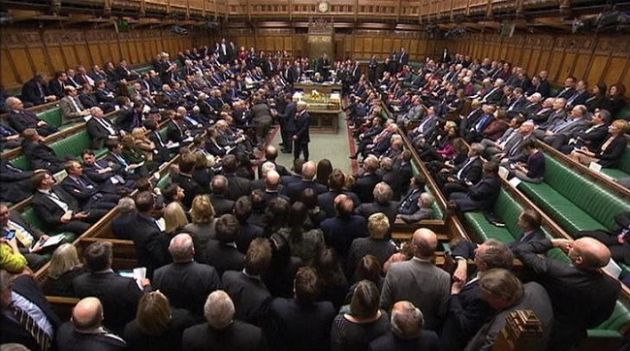UK approves gay marriage bill in preliminary vote

The British Parliament, as expected, in a preliminary vote on Tuesday easily passed a bill that could ultimately legalize same-sex marriage in England and Wales with it coming into effect in 2015.
The 400 to 175 vote came after a six hour debate. The legislation, known as the Marriage (Same-Sex Couples) Bill, now faces a more detailed debate by a committee of the House of Commons. It will also require a vote in the upper House of Lords which could come in May.
Prime Minister David Cameron, who heads the leading Conservative Party, has spearheaded the drive for passing the legislation. He said in December he did not want gay people "excluded from a great institution."
The bill passed with strong support from the opposition parties. Labour and the Liberal Democrats gave 217 and 44 votes respectively. The vote failed to get a majority of Conservatives, with 126 of 303 in favor.
Senior local Conservatives had urged the Prime Minister on Sunday to delay the vote, saying it could weaken the party and his chances for re-election.
On Monday, the new leader of the nation's established church, the Church of England, the Rev. Justin Welby, reiterated his opposition to same-sex marriage, saying the matter was a "difficult question" for Britain but placed the matter in a broader perspective.
"In the vast majority of the Anglican Communion this is not a particularly controversial issue. They're very much more worried about other things and those are the things I have to focus on as well. I have to look at the whole communion, not just this country," he said.
Maria Miller, the Culture Secretary in the government led by Prime Minister Cameron, said the bill "is about choice. It's about giving those who want to get married the opportunity to do so, while protecting the rights of those who don't agree."
A Church of England briefing on the matter given to legislators ahead of the vote said there were questions remaining about consummation and adultery, as well as uncertainty about teachers and the position of others holding traditional views of marriage working in public service, as well as the risk of challenges to churches in European courts despite protections provided in the legislation.
